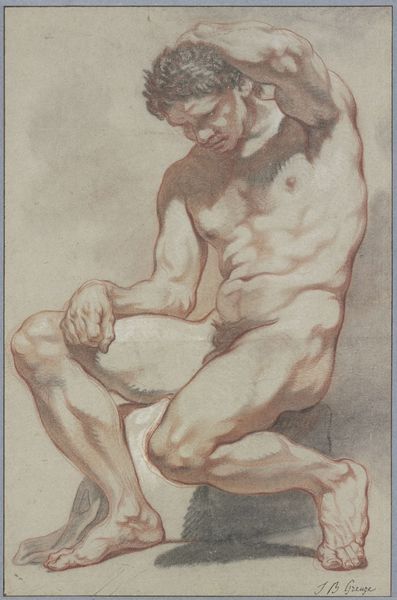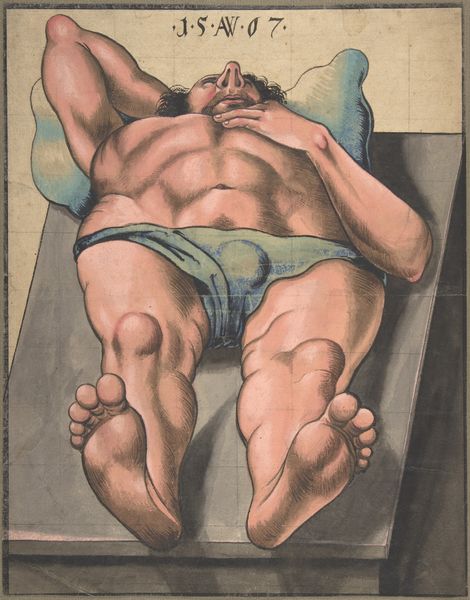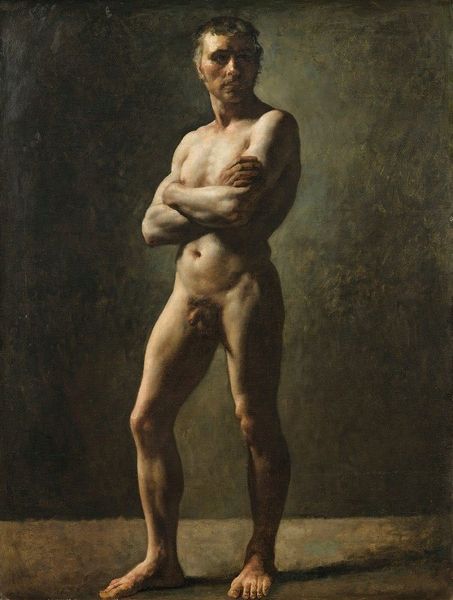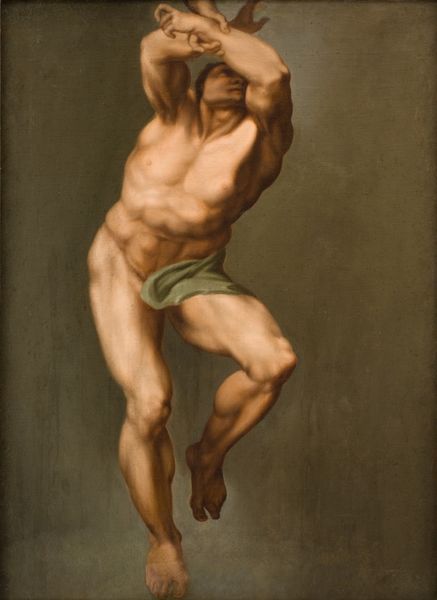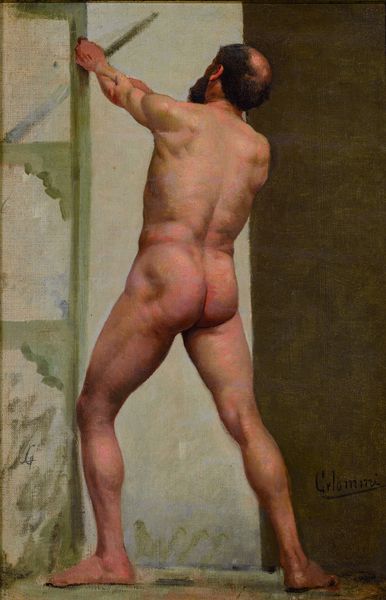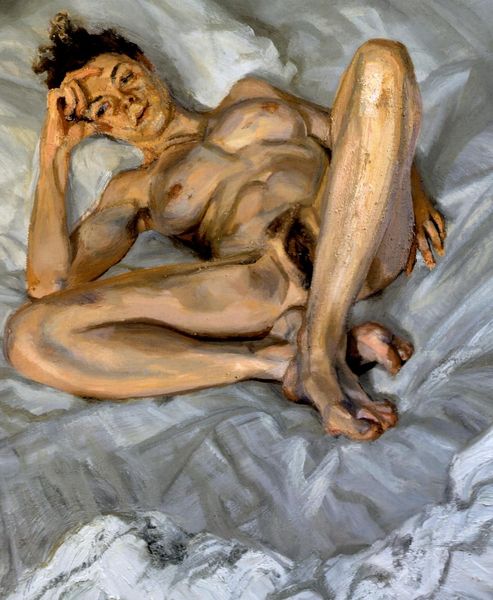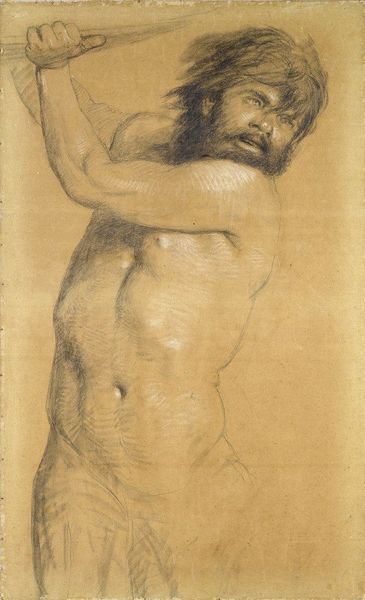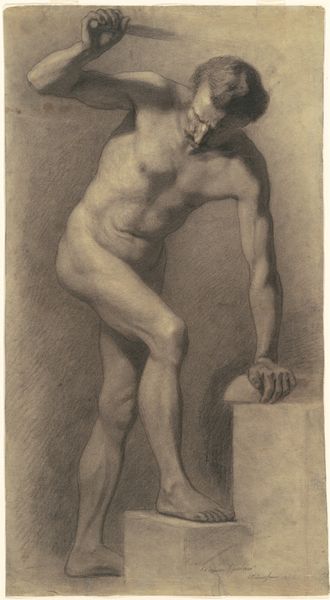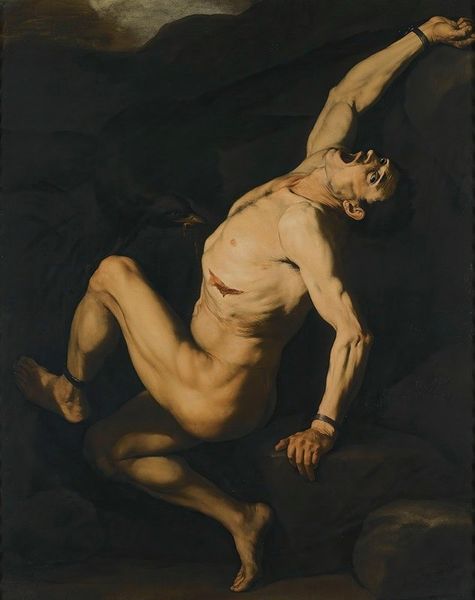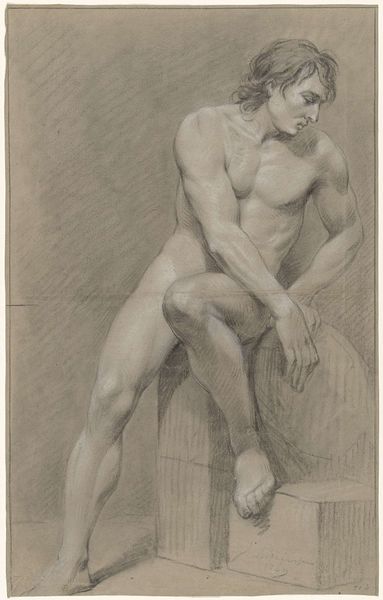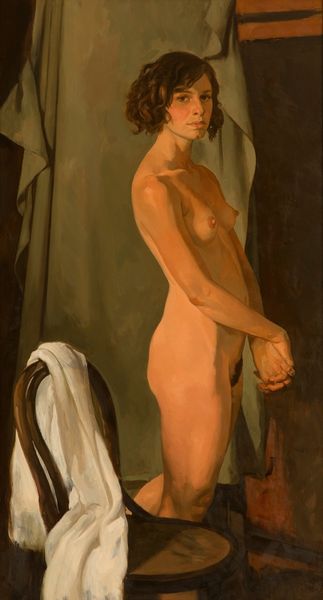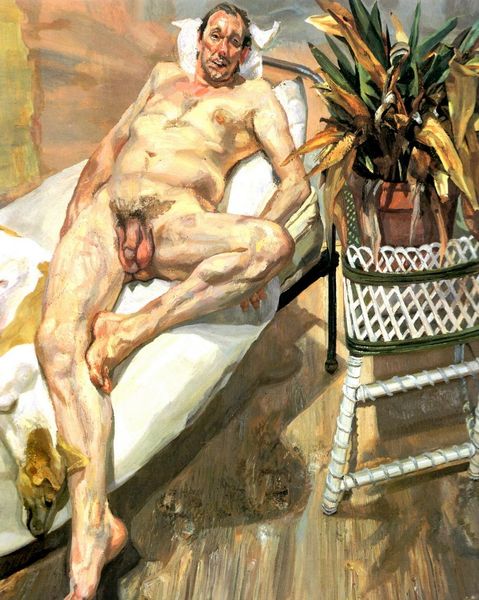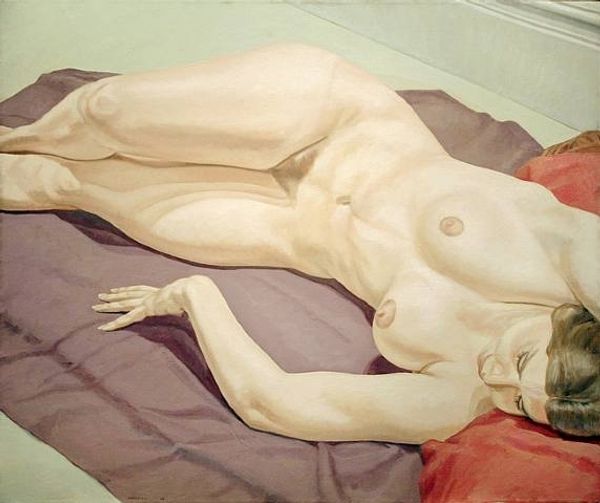
painting, oil-paint
#
painting
#
oil-paint
#
figuration
#
oil painting
#
nude
#
modernism
#
realism
Copyright: Philip Pearlstein,Fair Use
Editor: Here we have Philip Pearlstein’s “Nude on Green Cushion,” created in 1965 using oil paint. What strikes me most is the unidealized representation of the human body. What stands out to you? Curator: For me, it's how Pearlstein draws attention to the constructed nature of representation itself, specifically by employing oil paint. The visible brushstrokes remind us of the labor involved. How does the application of this specific material, oil paint, influence the viewers' perception of realism versus artifice? Editor: That's a good question. The materiality pushes it away from hyperrealism, I guess. In what ways might the 'realism' tag be interpreted beyond mere visual accuracy in this painting, especially given the period it was created? Curator: Consider the socio-economic context. In the 1960s, discussions about labor and the body were intensifying. Pearlstein presents us with a nude stripped of classical or romantic ideals. Is he commenting on the commodification of the body, making it just another object amongst the folds of the cushion and the application of the paint itself? What implications does this hold for consumer culture? Editor: So you’re saying the nude form isn’t elevated here but presented as something mundane, like a product of its time, rendered with visible labor. I hadn't considered that connection before. Curator: Precisely. And that, for me, is where its significance lies - its materiality becomes a statement on the socio-economic factors influencing art production and perception. Editor: This has totally shifted how I see it, considering how the materials contribute to the commentary. Thanks! Curator: My pleasure, this reinforces how material considerations offer a deeper lens into understanding artwork.
Comments
No comments
Be the first to comment and join the conversation on the ultimate creative platform.
